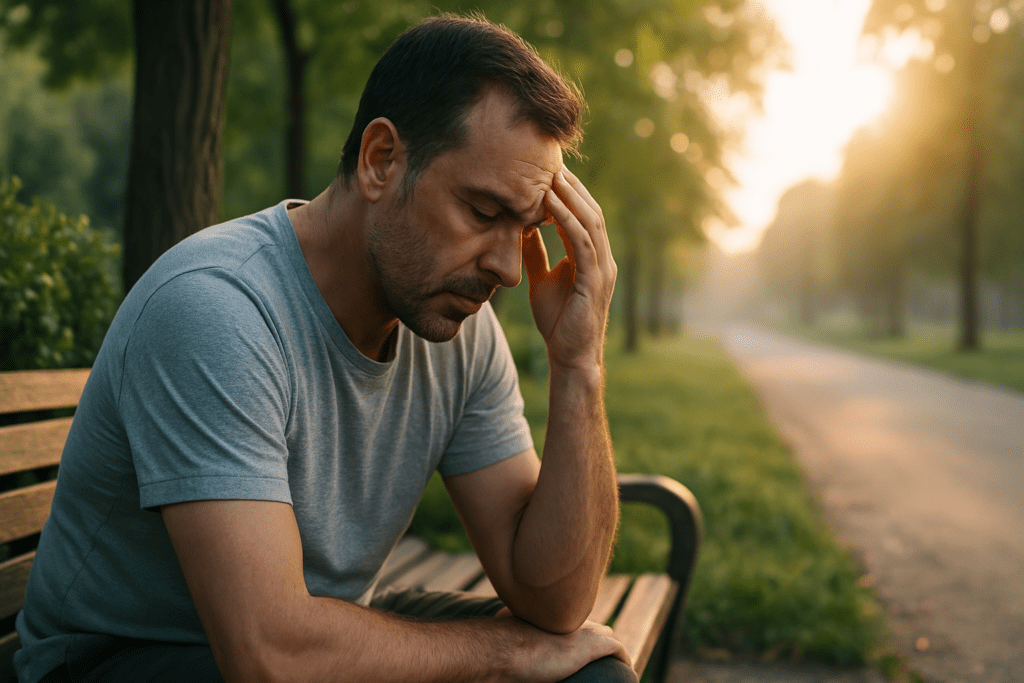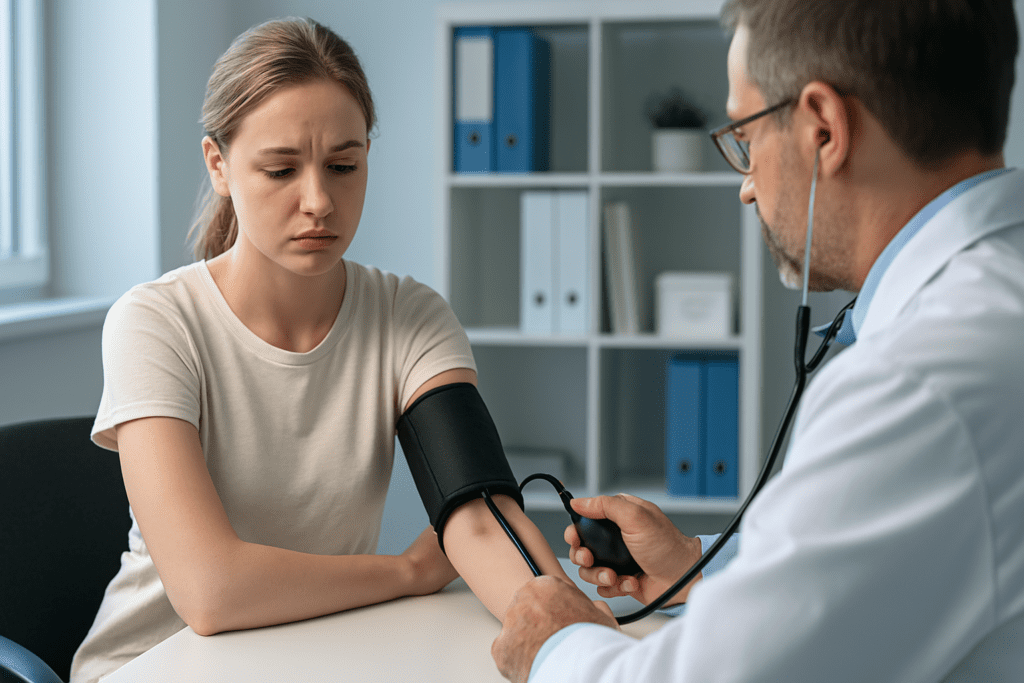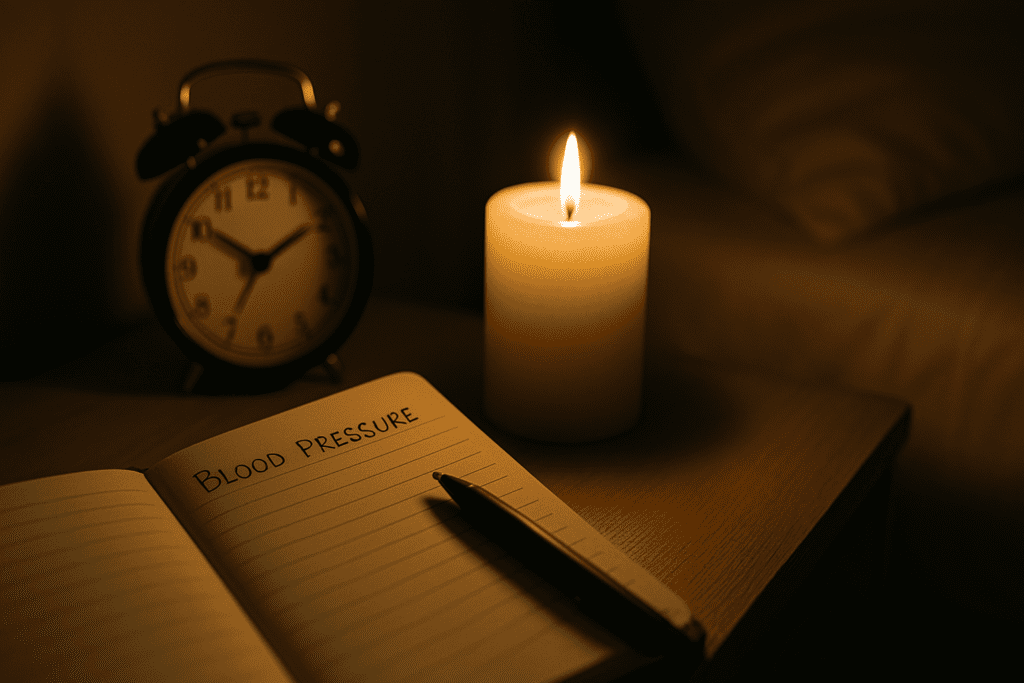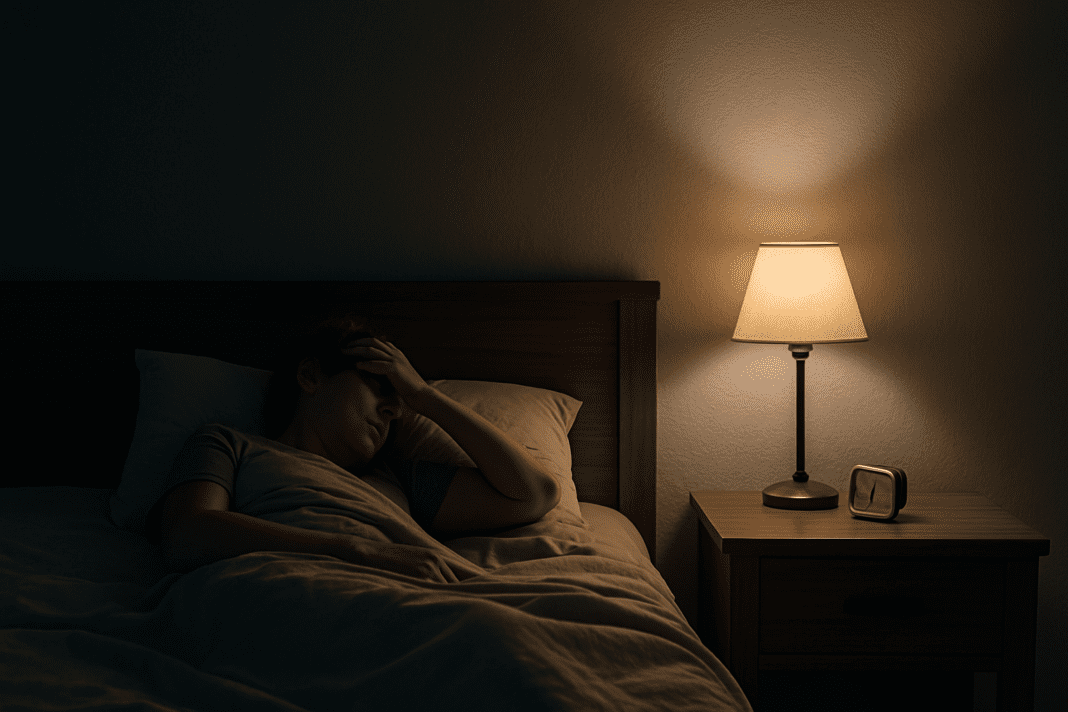Blood pressure is not a fixed, unchanging measurement. It fluctuates throughout the day in response to various internal and external factors, including physical activity, stress levels, sleep patterns, and even the natural rhythm of the body’s internal clock. For individuals managing cardiovascular health or facing a diagnosis of hypertension, understanding when blood pressure is the highest can offer valuable insight into symptom patterns and treatment optimization. Notably, many people report that their blood pressure is higher in the morning, prompting the frequently asked question: why is my blood pressure high in the morning? This phenomenon is not merely anecdotal but rooted in physiological mechanisms that have been studied and corroborated by scientific research. Understanding what time of day blood pressure is highest—and why—can empower individuals to make informed choices about medication timing, lifestyle habits, and health monitoring practices.
The concept of circadian rhythms plays a central role in understanding these fluctuations. Blood pressure is highest during specific periods of the day due to hormonal and neurological influences that prepare the body for waking and activity. For those asking, “when is blood pressure the highest?” or wondering “is blood pressure higher in the morning?”, the answer typically aligns with the early hours after waking. However, individual variations exist, and blood pressure patterns may differ in shift workers, those with sleep disorders, or people with uncontrolled hypertension. These considerations are not merely academic; they carry significant clinical implications, especially for cardiovascular risk assessment and stroke prevention. By taking a deeper dive into these daily patterns, we can better grasp the nature of high blood pressure, particularly as it presents in the morning hours.
You may also like: Sudden Spikes in Blood Pressure: What Can Cause a Sudden Increase and When to Seek Medical Attention
Understanding the Circadian Rhythm and Blood Pressure Regulation
The body operates according to a natural 24-hour cycle known as the circadian rhythm, which influences virtually every physiological process, including blood pressure. This internal clock is regulated by the hypothalamus and responds primarily to cues such as light and darkness. The sympathetic nervous system, which controls the “fight or flight” response, becomes more active in the early morning hours. This activation results in a surge of cortisol and adrenaline, hormones that help wake the body up but also cause blood vessels to constrict and the heart rate to rise. This process directly contributes to the phenomenon of high blood pressure in the morning, a pattern consistently observed in both normotensive and hypertensive individuals.
In people with healthy cardiovascular function, the increase in blood pressure after waking is usually well-regulated and does not pose a significant risk. However, for those with underlying cardiovascular conditions, this morning surge can be problematic. Research shows that the incidence of heart attacks, strokes, and other adverse cardiovascular events peaks in the early morning hours, coinciding with this rise in blood pressure. This observation has prompted clinicians to investigate why blood pressure is highest during these hours and how this knowledge can inform treatment strategies. Understanding the connection between circadian rhythms and blood pressure not only sheds light on daily fluctuations but also underscores the importance of timing in hypertension management.
Morning Hypertension: A Risk Marker for Cardiovascular Events
The term “morning hypertension” refers to elevated blood pressure readings recorded within one to two hours of waking. Clinicians have long recognized that high blood pressure in the morning is more than just a quirk of physiology—it may serve as an early warning sign for cardiovascular risk. For individuals asking, “why is my BP high in the morning?” the answer often lies in a combination of behavioral, biological, and environmental factors. These may include poor sleep quality, sleep apnea, medication timing, and the natural hormonal surge that accompanies waking.
When blood pressure is highest during the early morning period, it exerts increased strain on the arteries and heart, potentially accelerating atherosclerosis and increasing the risk of plaque rupture. This pattern is especially concerning in patients who already have a diagnosis of hypertension or other cardiovascular risk factors such as diabetes, smoking, or high cholesterol. Morning hypertension has been linked to a higher incidence of stroke, left ventricular hypertrophy, and chronic kidney disease. Therefore, monitoring blood pressure in the morning is not just about curiosity—it is a critical part of proactive cardiovascular care.
Recognizing high BP in the morning as a distinct clinical pattern allows for targeted interventions. Adjusting the timing of antihypertensive medications or incorporating evening doses of certain long-acting drugs may help blunt the morning surge. Additionally, lifestyle modifications such as reducing caffeine intake, improving sleep hygiene, and managing stress levels can contribute to more stable morning blood pressure readings. This knowledge empowers patients to ask better questions and work with their healthcare providers to create individualized treatment plans.

Is Blood Pressure Higher in the Evening? A Comparative Look
While much attention is given to the morning rise in blood pressure, it is also worth considering whether blood pressure is higher in the evening for some individuals. The pattern of blood pressure over a 24-hour period generally follows a predictable curve: it rises upon waking, peaks in the late morning to midday, declines gradually in the afternoon, and reaches its lowest point during sleep. However, this pattern can vary significantly depending on an individual’s lifestyle, stress exposure, medication adherence, and comorbidities.
For example, in shift workers or individuals with erratic sleep-wake cycles, blood pressure may not follow the conventional circadian pattern. In some cases, blood pressure is highest during the evening hours, particularly if stress, poor diet, or sedentary behavior accumulates throughout the day. While “is blood pressure higher in the evening?” is a valid question, it is essential to evaluate it in the context of the person’s overall health, daily routine, and risk factors. Evening hypertension can still be clinically relevant, especially if it coincides with symptoms such as headaches, dizziness, or chest discomfort.
Understanding when blood pressure is highest is not about identifying a one-size-fits-all rule but about recognizing patterns that matter for individual health outcomes. Whether high BP occurs in the morning or the evening, consistent monitoring and personalized intervention remain the cornerstones of effective hypertension management. This nuanced approach can help prevent complications and promote long-term cardiovascular stability.
Factors That Influence the Morning Blood Pressure Surge
Numerous factors contribute to the phenomenon of high blood pressure in the morning. Among the most prominent is the hormonal activity that occurs as part of the natural waking process. As the body transitions from sleep to wakefulness, levels of cortisol and adrenaline rise, preparing the individual for the demands of the day. While these hormones are essential for alertness and energy, they also cause the blood vessels to constrict and the heart to beat faster, contributing to higher blood pressure readings.
Another critical factor is the timing and effectiveness of antihypertensive medication. Some medications wear off during the night, leading to a rebound increase in blood pressure upon waking. This is particularly relevant for patients on once-daily medication regimens that do not provide 24-hour coverage. As such, the timing of medication administration can significantly affect morning blood pressure levels. Physicians may recommend adjusting doses or switching to long-acting formulations to maintain round-the-clock control.
Sleep quality and disorders such as obstructive sleep apnea (OSA) also play a pivotal role. OSA is known to cause intermittent drops in blood oxygen levels, which trigger surges in sympathetic nervous system activity. This heightened state persists into the early morning, leading many OSA patients to report that their blood pressure is highest during the first few hours after waking. Stress and anxiety, both chronic and acute, can further amplify these effects, making stress management an essential component of hypertension treatment.

Monitoring Blood Pressure at the Right Time for Accurate Diagnosis
Accurate diagnosis and effective management of hypertension require reliable blood pressure readings taken at appropriate times. For individuals suspecting that their blood pressure is higher in the morning, home monitoring can offer critical insight. Experts recommend measuring blood pressure at consistent times each day, ideally in the morning before taking medication and in the evening before bed. This dual approach helps clinicians assess whether there is a pronounced morning surge or if blood pressure remains elevated throughout the day.
Ambulatory blood pressure monitoring (ABPM) is another valuable tool in this context. ABPM involves wearing a portable device that records blood pressure at regular intervals over 24 hours. It provides a detailed picture of blood pressure variability and can confirm whether a patient experiences hypertension morning patterns or exhibits elevated readings in other parts of the day. ABPM is considered the gold standard for diagnosing white-coat hypertension, masked hypertension, and evaluating the efficacy of treatment regimens.
When interpreting results, clinicians take into account not only the average values but also the timing of spikes and drops. Identifying when BP is the highest enables healthcare providers to tailor treatment strategies more precisely. For patients, this means greater clarity and confidence in their health management. Rather than relying on sporadic office readings, daily monitoring offers a clearer view of how lifestyle, sleep, medication, and stress affect blood pressure over time.
Strategic Timing of Medication to Counter Morning Hypertension
Timing is everything when it comes to managing high BP in the morning. The goal is not just to lower overall blood pressure but to prevent the harmful surges that occur during vulnerable periods, particularly upon waking. Chronotherapy, a practice that involves timing medication administration to align with the body’s biological rhythms, has gained traction as a strategy for optimizing blood pressure control.
For many patients, taking antihypertensive medications at night rather than in the morning results in better overnight control and blunts the early morning surge. Studies have shown that nighttime dosing of certain medications, such as ACE inhibitors, ARBs, and calcium channel blockers, can reduce cardiovascular events and improve overall blood pressure patterns. This approach is especially beneficial for individuals whose blood pressure is highest during the early morning hours.
However, the decision to shift medication timing should always be guided by a healthcare professional. Not all medications are suitable for nighttime use, and individual factors such as renal function, sleep quality, and comorbid conditions must be considered. By working closely with their physicians, patients can develop a tailored plan that addresses their unique blood pressure fluctuations while minimizing side effects and maximizing therapeutic benefit.
Lifestyle Strategies to Stabilize Morning Blood Pressure
In addition to medication, lifestyle interventions play a critical role in managing high blood pressure in the morning. A consistent sleep schedule, stress reduction techniques, and healthy dietary habits can all contribute to more stable blood pressure throughout the day. Avoiding stimulants such as caffeine and nicotine in the hours leading up to bedtime can help reduce the morning spike, as these substances can linger in the system and affect blood pressure upon waking.
Regular physical activity, especially when performed in the morning or early afternoon, can improve cardiovascular health and blunt the hormonal surges associated with waking. Aerobic exercises like walking, swimming, or cycling have been shown to lower resting blood pressure and improve endothelial function. Mindfulness practices such as yoga, meditation, and deep breathing can also modulate the stress response, which in turn helps control blood pressure levels.
Nutrition should not be overlooked. Diets rich in potassium, magnesium, and fiber—such as the DASH (Dietary Approaches to Stop Hypertension) diet—have been proven to lower blood pressure and reduce the need for medication. Reducing sodium intake, especially in the evening, can also help prevent fluid retention and pressure increases the following morning. Together, these lifestyle changes form the foundation of a holistic approach to managing hypertension morning patterns.

Frequently Asked Questions: Understanding Blood Pressure Fluctuations and Timing
1. Can poor sleep habits influence when blood pressure is the highest?
Absolutely. Disrupted sleep patterns can shift the timing of your body’s hormonal release, including the early-morning cortisol surge that normally helps prepare you for the day. When sleep is fragmented or too short, this cortisol release may occur prematurely or more intensely, causing blood pressure to spike earlier than usual. This can complicate the question of when is blood pressure the highest, particularly in individuals working night shifts or dealing with chronic insomnia. In these cases, sleep-related stress may amplify hypertension morning effects, leading some to ask more frequently, “Why is my blood pressure high in the morning?” Addressing sleep hygiene can significantly improve the regulation of your circadian blood pressure rhythm.
2. How does emotional stress contribute to high BP in the morning?
Psychological stress activates the sympathetic nervous system, which is responsible for the body’s “fight or flight” response. When this system is overactive, it can cause blood pressure to rise, especially during the early hours when stress-related hormones are naturally elevated. If you’re consistently anxious about the day ahead, your body may respond by accelerating the morning surge, intensifying high BP morning readings. This makes it harder to pinpoint what time of day blood pressure is highest, as emotional reactivity may shift these patterns unpredictably. Managing morning routines and incorporating stress-reducing practices like mindfulness can reduce the frequency of elevated readings upon waking.
3. Is blood pressure higher in the evening for people with certain health conditions?
Yes, individuals with certain metabolic or endocrine disorders may find that blood pressure is higher in the evening due to hormonal imbalances, poor medication adherence, or accumulated dietary sodium throughout the day. People with diabetes or adrenal dysfunctions often experience such shifts, making it more difficult to generalize when BP is the highest for everyone. While hypertension morning readings are common, evening hypertension can also signal an underlying problem such as renal impairment or poor circadian blood pressure control. Keeping a log over several weeks can help reveal if blood pressure is highest during the evening instead, warranting medical attention.
4. Why might physically inactive individuals have higher morning blood pressure?
Sedentary lifestyles can reduce blood vessel elasticity and impair the body’s ability to regulate pressure changes smoothly. Without regular physical activity, the vascular system becomes less responsive to hormonal fluctuations, particularly during early morning hours when sympathetic activity naturally rises. This rigidity can exacerbate high BP morning readings, especially in older adults. For these individuals, when is blood pressure the highest may depend less on their sleep schedule and more on the cardiovascular system’s diminished adaptability. Incorporating light aerobic exercise—even just walking—can improve this responsiveness and lower the morning surge.
5. Can certain medications alter the timing of when blood pressure is highest?
Definitely. The timing and type of antihypertensive medication can shift your body’s natural blood pressure curve. If medication wears off overnight or is taken too early in the day, it may leave a gap in coverage, causing a rebound effect where blood pressure is highest during early morning hours. Conversely, taking extended-release or nighttime-dosed formulations may blunt the morning rise and shift pressure peaks to the afternoon. Patients often discover that high BP morning episodes resolve once they work with their doctor to adjust timing. It’s crucial to evaluate how your unique pharmacological profile interacts with your circadian rhythm.
6. How does dehydration impact early morning blood pressure readings?
Dehydration thickens the blood and reduces plasma volume, forcing the heart to work harder to circulate fluids. This process can amplify the morning pressure surge, especially if hydration was insufficient the previous day or if you perspire heavily during sleep. Individuals who frequently experience dry mouth or lightheadedness upon waking may wonder why their BP is high in the morning. While not always the primary cause, dehydration can exacerbate existing hypertension morning patterns. Ensuring adequate water intake and minimizing diuretics like caffeine or alcohol in the evening can help balance early readings.
7. What role does age play in determining what time of day blood pressure is highest?
As we age, our vascular compliance—the ability of blood vessels to expand and contract—diminishes, altering how pressure is regulated throughout the day. Older adults are more likely to experience morning hypertension due to stiffer arteries and delayed responsiveness to hormonal cues. Consequently, for this group, when blood pressure is the highest often aligns with the early morning hours, even more predictably than in younger individuals. Additionally, baroreceptor sensitivity—which helps detect and adjust blood pressure—declines with age, compounding the issue. This is why age-specific strategies, including tailored exercise and medication schedules, are often needed for managing high BP in the morning.
8. Could caffeine intake influence why blood pressure is highest during the morning?
Caffeine is a known vasoconstrictor that can elevate blood pressure temporarily, and its effects may be more pronounced when consumed on an empty stomach. Many people consume caffeine as part of their morning routine, which may explain why some notice their blood pressure is highest during that period. If someone regularly experiences high BP in the morning and consumes caffeine shortly after waking, it may be worth delaying or reducing intake to see if it moderates the surge. It’s important to differentiate whether the caffeine itself is the cause or merely exacerbating a pre-existing hypertension morning pattern. Substituting caffeinated beverages with herbal alternatives could provide valuable data when evaluating blood pressure timing trends.
9. Why do some people experience inconsistent daily patterns in blood pressure readings?
Inconsistencies can result from a combination of environmental stressors, inconsistent sleep schedules, dietary fluctuations, and poor medication adherence. Individuals who travel frequently, work variable shifts, or experience high psychological stress may notice that blood pressure is highest during different parts of the day on different occasions. This makes answering questions like “is blood pressure higher in the morning or the evening?” more complex. Such variability can obscure patterns and make it harder to manage hypertension effectively. In these cases, continuous monitoring with wearable or ambulatory devices provides more reliable insights than occasional home measurements.
10. Can genetic factors determine when BP is the highest during the day?
Emerging research suggests that genetic polymorphisms influencing the renin-angiotensin-aldosterone system (RAAS) and circadian rhythm regulators may predispose certain individuals to morning or evening hypertension. If a close relative consistently experiences high BP in the morning, there may be a heritable component influencing the timing of when blood pressure is highest. These genetic differences can affect how your body metabolizes medications, responds to salt, or regulates stress hormones like cortisol. As personalized medicine continues to evolve, understanding these inherited tendencies may help clinicians tailor therapy not just by type, but by time of administration. It could also explain why your blood pressure is highest during specific times, despite similar habits to others around you.
Final Reflections: When Is Blood Pressure the Highest and Why It Matters for Long-Term Heart Health
Recognizing when blood pressure is the highest is more than an academic exercise—it is a gateway to understanding one’s cardiovascular risk profile and optimizing both prevention and treatment strategies. For many individuals, blood pressure is highest during the early morning hours, a pattern driven by the body’s natural hormonal rhythms, medication timing, and lifestyle factors. Whether you’re wondering why your blood pressure is high in the morning or questioning if it’s normal for blood pressure to peak in the evening, the key is to identify your individual pattern and address it with evidence-based strategies.
Morning hypertension, in particular, is a critical marker that deserves attention. It is closely linked with adverse cardiovascular outcomes and often signals the need for adjustments in medication, lifestyle, or both. Fortunately, modern tools such as home monitoring and ambulatory blood pressure devices make it easier than ever to track fluctuations and share meaningful data with healthcare providers. By adopting a comprehensive approach that includes chronotherapy, stress management, dietary modifications, and regular exercise, patients can better manage high BP in the morning and reduce long-term health risks.
Ultimately, asking questions like “what time of day is blood pressure highest?” or “why is my BP high in the morning?” reflects a proactive mindset. These inquiries point toward a deeper awareness of the body’s rhythms and the importance of precision in healthcare. As we continue to uncover the complex relationship between time of day, blood pressure regulation, and heart health, one truth remains clear: knowledge empowers prevention, and timing can be everything in the journey toward cardiovascular wellness.
morning blood pressure spikes, circadian rhythm and hypertension, cardiovascular risk factors, managing high morning blood pressure, early signs of hypertension, stress and blood pressure, sleep apnea and hypertension, optimal time to check blood pressure, chronotherapy for hypertension, natural ways to lower blood pressure, blood pressure monitoring tips, antihypertensive medication timing, lifestyle changes for heart health, effects of cortisol on blood pressure, regulating morning hypertension, sleep quality and blood pressure, blood pressure and aging, hormonal impact on blood pressure, heart attack risk in the morning, personalized blood pressure management
Further Reading:
Is blood pressure higher in the morning?
Understanding Blood Pressure Readings
Blood pressure: Does it have a daily pattern?
Disclaimer
The information contained in this article is provided for general informational purposes only and is not intended to serve as medical, legal, or professional advice. While MedNewsPedia strives to present accurate, up-to-date, and reliable content, no warranty or guarantee, expressed or implied, is made regarding the completeness, accuracy, or adequacy of the information provided. Readers are strongly advised to seek the guidance of a qualified healthcare provider or other relevant professionals before acting on any information contained in this article. MedNewsPedia, its authors, editors, and contributors expressly disclaim any liability for any damages, losses, or consequences arising directly or indirectly from the use, interpretation, or reliance on any information presented herein. The views and opinions expressed in this article are those of the author(s) and do not necessarily reflect the official policies or positions of MedNewsPedia.


